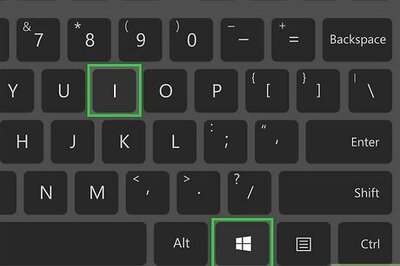
views
New Delhi: Do you find mutual funds attractive but don't invest in them due to the risk factor? Its time you learn that mutual funds are a lucrative investment, ensure higher returns, better tax benefits and carry minimalistic risk.
In this article we will explain why Fixed Maturity Plans issued by mutual funds are much more profitable than fixed deposits offered by banks.
The fact is that according to the SEBI rules, mutual funds are not allowed to assure returns. The yield is indicated and not assured. However, for all practical purposes, the indicated yield is almost exactly what the investor gets at the time of maturity.
What is an FMP?
FMP stands for Fixed Maturity Plan. These are essentially close-ended income schemes with a fixed maturity date ie that run for a fixed period of time. This period could range from one month to as long as two-years or more. When the fixed period comes to an end, the scheme matures, and your money is paid back to you.
FMPs do not invest in equity. The portfolio is generally invested in debt and money market instruments maturing in line with the tenure of the scheme. The objective is to lock-in the investment at a specified rate of return thereby immunizing the scheme against market fluctuations.
Liquidity
In most open-ended mutual fund schemes, one can redeem one’s units anytime. However, the structure of the FMP does not lend itself to this kind of liquidity. One should invest the money that he is more or less sure that he is not going to need it during the tenure of the plan. If you withdraw before the scheme closes, generally a steep exit load is imposed.
The reason for this steep load is to deter investors treating the FMP like a normal income scheme. Though income schemes invest in similar instruments as an FMP, being open-ended and not having a specific tenure based investment strategy, these are subject to interest rate risk leading to fluctuations in the NAV.
Lately the interest rates on bank deposits have increased leading many investors to wonder whether a simple Bank Fixed Deposit (FD) would serve better than having to go through the process of investing in an FMP. Though Bank FDs and FMPs currently offer a similar rate of return; the tax impact tilts the scales in favour of the FMP.
Interest on Bank FDs is fully taxable whereas the return from FMPs is either subject to the Dividend Distribution Tax (for the dividend option) or the capital gains tax rate (for the growth option). The Distribution Tax rate @14.16 per cent or the capital gains tax rate @10 per cent are lower than the income tax rate, especially in the case of investors in the higher tax bracket. Tax directly eats into returns, which is why FMPs have the edge over Bank FDs.
To illustrate this point, have a look at the following. It is assumed that both, the Bank FD as well as the FMP yield the same rate of interest i.e. 10.25 per cent pa An investment of Rs. 1 lakh is made in an FMP of 91 days. The corresponding figures for the Bank FD appear alongside.
Are FMPs for you?
As I write this, markets are extremely choppy. Depending upon whom you talk to, either a severe correction is round the corner or the market is going to go up by a couple of thousand points more. Though no one has seen what tomorrow will bring, common sense indicates that a post tax yield of almost 9 per cent is too good to ignore.
If you are looking for a fixed income avenue that yields a reasonable return with minimum risk, adequate liquidity and tax efficiency, FMPs will provide you with an effective shelter.
Why FMPs are more lucrative than Bank FDs?
Lately the interest rates on bank deposits have increased leading many investors to wonder whether a simple Bank Fixed Deposit (FD) would serve better than having to go through the process of investing in an FMP. Though Bank FDs and FMPs currently offer a similar rate of return; the tax impact tilts the scales in favour of the FMP.
Interest on Bank FDs is fully taxable whereas the return from FMPs is either subject to the Dividend Distribution Tax (for the dividend option) or the capital gains tax rate (for the growth option). The Distribution Tax rate @14.16 per cent or the capital gains tax rate @10 per cent are lower than the income tax rate, especially in the case of investors in the higher tax bracket. Tax directly eats into returns, which is why FMPs have the edge over Bank FDs.
To illustrate this point, have a look at the following table. It is assumed that both, the Bank FD as well as the FMP yield the same rate of interest ie 10.25 per cent pa An investment of Rs 1 lakh is made in an FMP of 91 days. The corresponding figures for the Bank FD appear alongside.
The author is an investment expert with moneycontrol.com




















Comments
0 comment